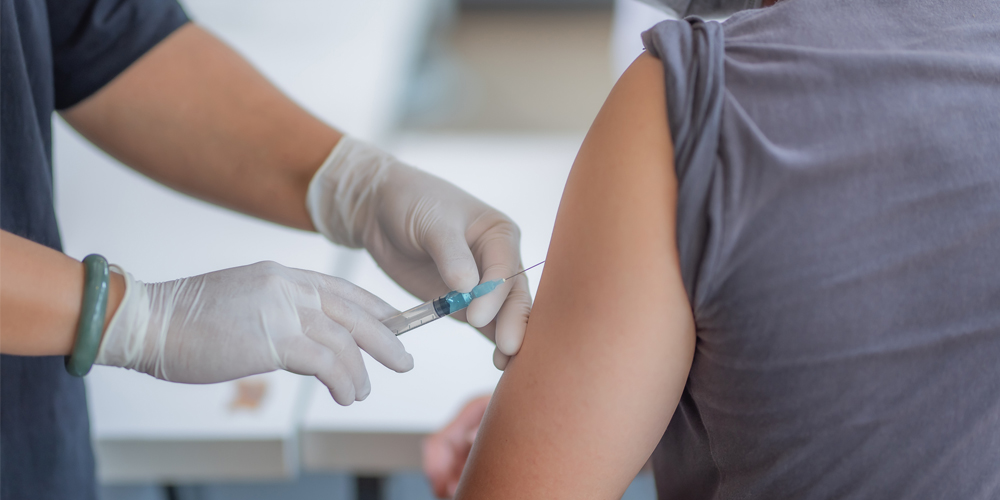Getting vaccinated in the year of the COVID-19 pandemic

Getting vaccinated is more important now than ever, according to Jennifer Veltman, chief of infectious diseases at Loma Linda University Health in Loma Linda, California, United States. In addition to the COVID-19 pandemic, kids are going back to school in person and virtually, and flu season is right around the corner.
Veltman said research continues to show that vaccines are safe. “It’s important to get vaccinated if you can. Widespread vaccination helps protect communities from outbreaks.”
She urged adults and kids to get their scheduled vaccines, and here’s why.
We Are Still in the Middle of a Pandemic
Influenza is a deadly virus with many — but not all — of the same symptoms as COVID-19. While there isn’t yet an approved vaccine against COVID-19, t protective vaccines against influenza and other infectious diseases are available.
In any given year, nearly half of the U.S. population is vaccinated against the flu, which has a tremendous impact on decreasing the number of cases and deaths from the virus across the country.
“If we let our guard down this year because of COVID-19, we will see a spike in flu cases and increased deaths,” Veltman said.
Not only is the flu vaccine beneficial to individuals to reduce their risk of illness, hospitalization, and death. It is also beneficial for the health-care system.
“The fewer resources we utilize for influenza care, the more resources we have available to care for those infected with COVID-19 and other life-threatening conditions,” Veltman said.
In School or at Home, Kids Still Need Their Vaccines
Even though children may not be back in school, households are likely not in complete quarantine. While physical distancing and masks are still recommended, respiratory viruses are still spreading, as seen with COVID-19.
“Children often do not have natural immunity from past infections and are therefore at higher risk of severe disease,” Veltman said. “When you vaccinate your child, you also protect vulnerable groups, such as infants and people with weakened immune systems.”
According to Veltman, vaccination is the best way to protect children from severe illness and has the added benefit of decreasing spread to others, especially since many small children struggle with frequent hand hygiene and covering their mouths when coughing.
Veltman emphasizes that postponing childhood vaccinations puts kids and communities at risk of serious preventable diseases, and she urges parents to stick to the recommended vaccine schedule, especially during the COVID-19 pandemic.
Adults Are Not Immune
According to the United States Centers for Disease Control and Prevention (CDC), immunizations are not just for kids. Lifestyle factors, age, and travel can impact one’s risk for vaccine-preventable diseases. Adults 18 and older should get the Tdap vaccine every 10 years and the seasonal flu shot every year.
In North America, flu vaccines typically become available in October, which doctors say is an ideal time for getting vaccinated. However, as long as flu viruses are circulating, vaccination should continue, even as far as January or later, as the flu season can extend into the later winter and early spring months.
New for this year for adults under age 65 is the availability of a quadrivalent high-dose flu vaccine. In the past, individuals had to choose between a higher dose vaccine with protection against three influenza strains or a lower dose vaccine with protection against four influenza strains. This year, in the United States, a quadrivalent high dose vaccine will be available, increasing the amount of protection the flu shot will provide.
“[If we want] to care for everybody in the community, getting vaccinated is the first step,” Veltman said.
The original version of this story was posted on the Loma Linda University Health news site.








